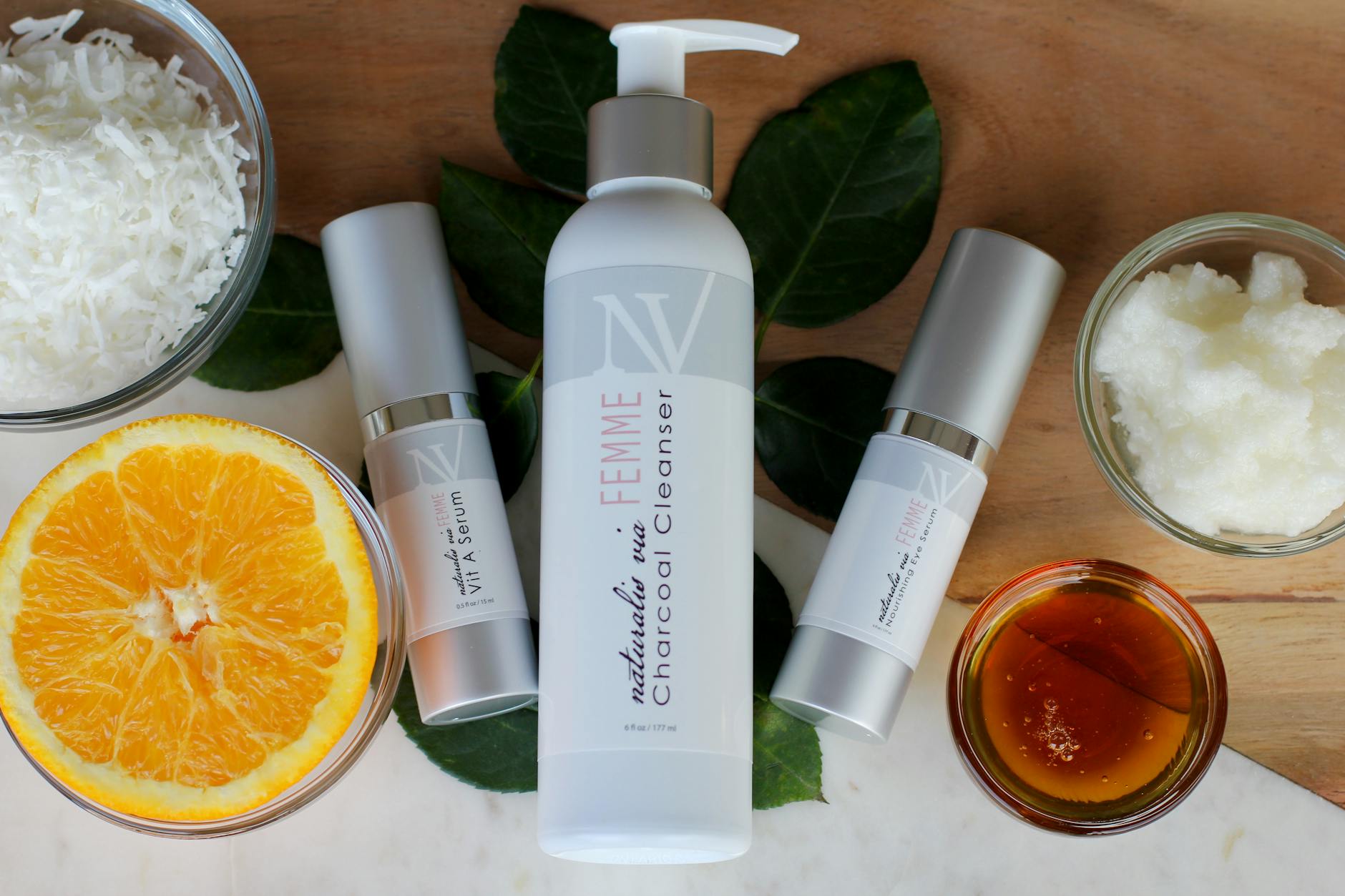Why Going Green with Sunscreen Matters for Australia's Marine Life

Impact of Sunscreen on Marine Life
As an eco-conscious advocate nestled between the beauty of the Great Barrier Reef and the lush greenery of the Cairns Esplanade, the significance of protecting marine life has always been close to my heart. Sunscreen, a staple for sun protection, plays a crucial role, especially for our little ones. Finding a kids sunscreen that doesn't harm aquatic life is not just necessary but vital, given the damaging effects certain chemicals can have.
Chemical Ingredients to Avoid
When selecting a sunscreen, it's essential to steer clear of certain chemicals. Oxybenzone and octinoxate are top offenders known to contribute to coral bleaching and harm marine species. Instead, I recommend opting for natural mineral-based ingredients like zinc oxide and titanium dioxide, which offer UV protection without detrimental impacts.
Effects on Coral Reefs
Coral reefs, such as those we cherish at the Great Barrier Reef, are particularly vulnerable. These vibrant ecosystems support diverse marine life, yet certain sunscreen chemicals can escalate coral degradation. Opt for sunscreens void of parabens and other harmful additives to ensure a safer oceanic environment.
Consequences for Marine Species
Our oceans teem with life, from colourful fish to delicate marine plants. Unfortunately, chemicals from non-eco-friendly sunscreens can threaten these species, disrupting the natural balance. Choosing a baby sunscreen that's kind to marine life is an easy eco-friendly tip to adopt, safeguarding these ecosystems for future generations to enjoy.
Benefits of Eco-Friendly Sunscreens
Ocean-Safe Formula Features
In the sun-soaked embrace of Cairns Esplanade, it's crucial to opt for eco-friendly sunscreens that protect our unique marine ecosystems. These sunscreens often boast an ocean-safe formula, free from harmful chemicals like oxybenzone and octinoxate, which have been linked to coral bleaching. Instead, they rely on mineral-based ingredients such as zinc oxide and titanium dioxide, which shield reef safe sunscreen users from harmful UV rays without compromising the health of our oceans.
Health Advantages for Users
Choosing the right sunscreen means considering personal health alongside environmental impact. Formulas designed with natural and reef-safe ingredients offer benefits beyond sun protection. Many eco-friendly sunscreens are less likely to irritate the skin, making them suitable for sensitive skin types. Plus, they often contain nourishing elements like antioxidants and vitamins, enhancing skin health while you enjoy Australia's outdoor splendour.
Environmental Sustainability
Embracing eco-friendly sunscreens is a simple yet impactful way to contribute to environmental sustainability. Beyond the immediate benefits to marine life, these sunscreens often come in biodegradable packaging, reducing plastic waste. Additionally, supporting brands that prioritise sustainable practices aligns with a broader commitment to protecting our planet. For those passionate about eco-friendly tips, making informed choices about products used daily, whether in bustling city streets or coastal paradises, is a step toward a more sustainable lifestyle.
Choosing Eco-Conscious Sunscreens
Key Certifications to Look For
When seeking eco-conscious sunscreens, there are crucial certifications that assert environmental credibility. Keep an eye out for the "Reef Safe" label. This certification assures users that the sunscreen is safe for delicate marine environments like the Great Barrier Reef. Moreover, the "Australian Certified Organic" badge is a reliable indicator that the product is crafted without harmful chemicals, aligning with eco-friendly values.
Understanding Ingredient Labels
Decoding ingredient lists is essential for those committed to sustainability. Key harmful chemicals, such as oxybenzone and octinoxate, should be missing from natural sunscreen options. Look instead for labels boasting natural and non-toxic ingredients like zinc oxide and titanium dioxide. These mineral-based components offer effective protection without posing threats to marine ecosystems. Additionally, prioritising plant-based elements speaks volumes about a product’s eco-consciousness.
Recommended Application Practices
Even with eco-friendly choices, application techniques matter. Use the recommended amount to maximize protection; this typically involves covering all exposed areas with a generous layer. Regular reapplication, especially after swimming or sweating, ensures continuous coverage. Implement an "eco-friendly tip" by opting for lotions or balms over aerosols, which can distribute chemicals into the air, conflicting with eco-conscious goals. Adapting these practices into daily outdoor routines helps foster a sustainable mindset.
Integrating Sustainable Choices
Building Eco-Awareness
It starts with understanding the impact of our actions on the environment. Recognising how personal care products, like zinc sunscreen, interact with ecosystems is crucial. Such awareness inspires more thoughtful choices that align with preserving the world’s natural beauty.
Simple Lifestyle Changes
Embracing sustainable living can be as straightforward as tweaking daily habits. Opting for reusable shopping bags, reducing plastic use, and selecting eco-friendly products are simple yet effective steps. By incorporating environmentally friendly alternatives, you contribute to the health of ecosystems akin to the beloved Great Barrier Reef, a symbol of biodiversity and resilience.
Inspiring Others to Act
Your actions can motivate others to join the sustainability journey. Share your knowledge about eco-friendly tips within your community or through digital channels. Discuss how you've integrated earth-conscious choices like choosing reef-safe sunscreens while visiting cherished local sites like the Cairns Esplanade. These conversations not only amplify eco-awareness but also create a ripple effect, encouraging more sustainable behaviours among friends and colleagues.
Empowering yourself with knowledge and taking small steps can influence broader change. By championing eco-friendly options, you're helping ensure that iconic locations like the Daintree Rainforest remain vibrant and protected.
Eco-Friendly Sunscreens: A Beneficial Choice
Ocean-Safe Sunscreen Attributes
Using sunscreens that are free from harmful chemicals like oxybenzone and octinoxate is crucial for protecting our marine ecosystems, particularly the Great Barrier Reef. These ocean-safe products often contain non-nano zinc oxide or titanium dioxide, which do minimal harm to aquatic life while still providing effective SPF protection.
Health Perks for Individuals
Eco-friendly sunscreens aren't just kinder to the environment; they also offer significant health advantages. Unlike conventional formulas that might contain endocrine-disrupting chemicals, eco-conscious options nurture your skin without harsh additives. Next time you're enjoying the sunshine along the Cairns Esplanade or trekking through the Daintree Rainforest, think about how these choices benefit both you and the planet.
A Sustainable Environmental Impact
Choosing eco-friendly sunscreens plays a massive role in environmental sustainability. Many brands are shifting towards biodegradable packaging materials and supporting reef-safe initiatives. By integrating such products into your daily routine, you’re contributing to the preservation of our lovely marine habitats.
Collecting Certifications and Reading Labels
When selecting an eco-conscious sunscreen, keep an eye out for certifications such as ‘Reef Safe’ and ‘EcoCert’. Reading the ingredient label is essential for identifying mineral-based formulas that eschew synthetic additives. By prioritizing these elements, you're ensuring a profound impact on both your health and the environment.


